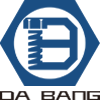1. Mechanical equipment and structural connections
Selection basis:
Load requirements: Consider the tension, shear force, and torque that the connected parts need to withstand. Select bolts of appropriate strength grade based on mechanical calculations.
Bolt strength: If the connection needs to withstand large forces, choose high-strength bolts (such as high-strength hexagonal bolts or headless bolts) to ensure the safety of the connection.
Recommended bolt types:
High-strength hexagonal bolts: Suitable for occasions with large loads.
Headless bolts (long-rod bolts): Used for heavy machinery that requires large tightening forces.
Ring bolts: Suitable for heavy structures that need to be connected or suspended.
2. Automobiles and vehicles
Selection basis:
Seismic and vibration resistance: Automobiles, airplanes, ships and other vehicles work at high speeds or in vibration environments, and bolts need to resist vibration and prevent loosening.
Corrosion resistance: Automobiles and other vehicles are often used in humid or corrosive environments, and bolts need to have good corrosion resistance.
Recommended bolt types:
Anti-loosening bolts (such as locking nuts, self-locking nuts or bolts with anti-loosening design): used to prevent loosening caused by vibration or impact.
Stainless steel bolts: suitable for humid and marine environments, and can effectively prevent corrosion.
Round head bolts: suitable for connections that require strong anti-loosening, especially in dynamic or vibrating environments.
3. Construction and civil engineering
Selection basis:
Structural stability: In situations where large static and dynamic loads are required, bolts with high shear and tensile strength need to be selected.
Weather resistance and corrosion resistance: Buildings and bridges are used in outdoor environments, and weather resistance and corrosion resistance need to be considered.
Recommended bolt types:
High-strength bolts: such as octagonal bolts, suitable for connections that bear large loads.
Hot-dip galvanized bolts: prevent corrosion due to exposure to moisture and climate change.
Expansion bolts: used in concrete and masonry structures, suitable for installations that require penetration of walls or foundations.
4. Aerospace and precision equipment
Choice basis:
High strength and light weight: In the aerospace field, the strength and weight requirements for bolts are very high, and bolts that are both light and strong need to be selected.
High temperature resistance: Especially in high temperature environments such as engines, bolts need to be able to withstand high temperatures without deformation or failure.
Recommended bolt types:
Titanium alloy bolts: With high strength and light weight, suitable for aerospace.
High temperature resistant bolts: Stainless steel bolts or alloy bolts are usually selected, which are resistant to high temperatures and not easy to oxidize.
5. Chemical and food industries
Choice basis:
Corrosion resistance: Bolts in the chemical industry will be exposed to corrosive chemicals, so they need to have good corrosion resistance.
Sanitary requirements: The food industry has high hygiene requirements, and bolts should not have gaps where bacteria accumulate.
Recommended bolt types:
Stainless steel bolts: With excellent corrosion resistance, suitable for chemical environments.
Sanitary bolts: With smooth, seamless design, prevent food or liquid retention and bacterial growth, and meet hygiene requirements.
6. Pipeline and pump systems
Choice:
Leakage resistance: Bolt connections need to ensure that the connection parts are sealed to prevent leakage.
Vibration resistance: Some pipeline systems are subject to vibration and need to prevent bolts from loosening.
Recommended bolt types:
Sealing bolts (such as O-ring bolts): provide effective sealing functions to prevent liquid or gas leakage.
Lock-proof bolts: prevent loosening caused by vibration.
7. Light industry and home appliances
Choice:
Relatively small load: Light industry and home appliances usually do not need to withstand high-intensity loads.
Easy to disassemble: Some equipment may require regular maintenance, so it is more appropriate to choose bolts that are easy to disassemble and install.
Recommended bolt types:
Ordinary hexagonal bolts: suitable for connections with light loads.
Self-tapping bolts: suitable for thin plate connections, no need to punch holes in advance.
Galvanized bolts: corrosion-resistant and durable, suitable for home appliances and light industry.
When selecting bolts in different scenarios, it is necessary to comprehensively consider factors such as load requirements, environmental conditions, corrosion resistance, strength and safety. Select bolts of appropriate type and material according to specific application requirements, and select the best bolt type based on special requirements such as anti-loosening, anti-leakage, and high temperature resistance.
Post time: Jan-14-2025
